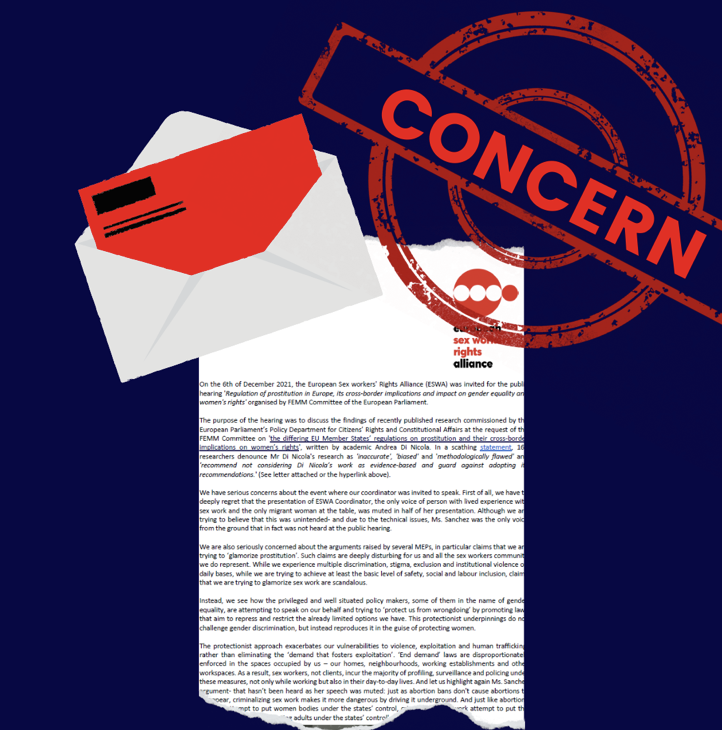The European Parliament is currently discussing new compromise amendments to the Digital Services Act (DSA). However, our organisation, the European Sex Workers’ Rights Alliance (ESWA) which represents 90+ organisations working with sex workers in Europe and Central Asia, have significant worries regarding an amendment that the European Parliament will vote on in mid-January 2022. This amendment proposes introducing a user verification process for pornographic content creators through “a double opt-in e-mail and cell phone registration”. We welcome the IMCO committee and the Parliament’s will and effort to create a safer online environment for users. We strongly support the general aim and intent of the amendments. However, we believe that mandatory cell phone registration would be detrimental to the rights of sex workers and other online content creators, and it is a harmful practice regarding ensuring online privacy and security of marginalised communities.
The proposed amendment that brings mandatory registration was accepted by the European Parliament last week. But it is not over yet. Next week, the Council of Europe will be looking at the proposed legislation and negotiations will take place.
Sex workers are a heavily stigmatised and criminalised community that often operate within precarious living and working conditions. Yet, especially after the COVID-19 pandemic, access to online platforms and the ability to work online have been a lifeline for many sex workers who struggled to earn sufficient income to pay their rents or look after their dependents. Due to this stigmatised and criminalised nature of adult sexual content production and other types of sex work, the safety of their data is of utmost importance as any data infringements or data leaks can pose a direct threat to the real-life (offline) safety and wellbeing of sex workers. Data infringements and leaks happen regularly regardless of the safety measures taken by private companies or governments. Therefore, when regulating online content on platforms that are used frequently by stigmatised and discriminated communities, data collection requirements can cause more harm than their intended benefits. For example, collecting the mobile phone numbers of all uploaders to porn platforms would expose sex workers to the threat of data leaks and abuses, including forced public outings (public shaming), stalking, blackmail, extortion and violence or deprivation of child custody.
“I have been doing sex work including creating porn content for 5 years now. What is important to me, as much as a creator as a simple user on platforms, is to know that my personal information is safe. From my point of view, collecting emails and phone number is dangerous and risky and I would fear that my personal info would leak, and to be easily (as a sex worker moreover) a target for any kind of harassment, content theft, identity theft.” – Berthe De Laon, sex worker.
The European Sex Workers’ Rights Alliance (ESWA) would support the amendments that aimed at empowering users by keeping porn platforms responsible for providing professional human content moderators that would take necessary steps to ensure the safety of individuals on these platforms as well as providing ways for users to identify and report suspicious activities. The regulations must take into account the needs of all marginalised communities.
The European Sex Workers’ Alliance (ESWA) urgently call all its member organizations to send a letter of concern to Council of Europe representatives in their countries regarding the Digital Services Act (DSA) amendment in order to reject the mandatory amendment registration for pornographic content creators (point (a) of Amendment 1521 Article 24b).

